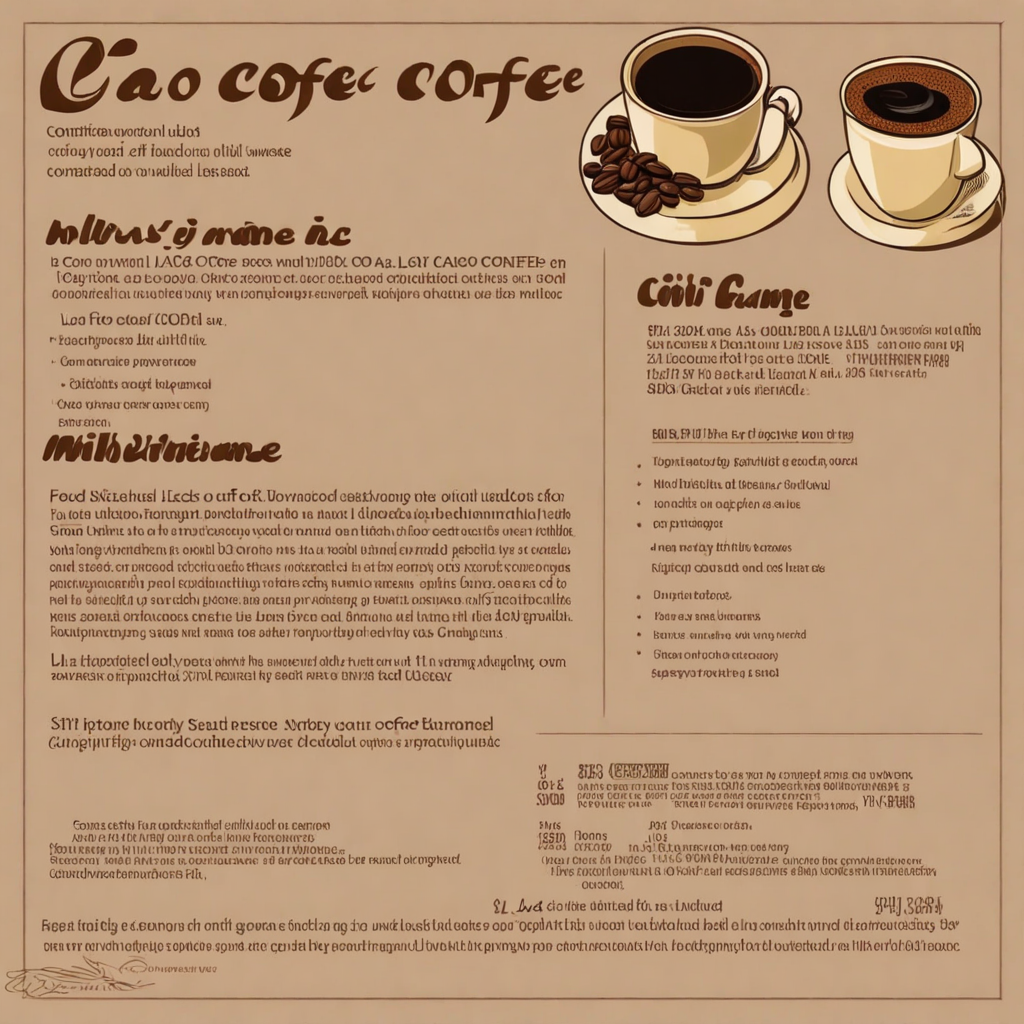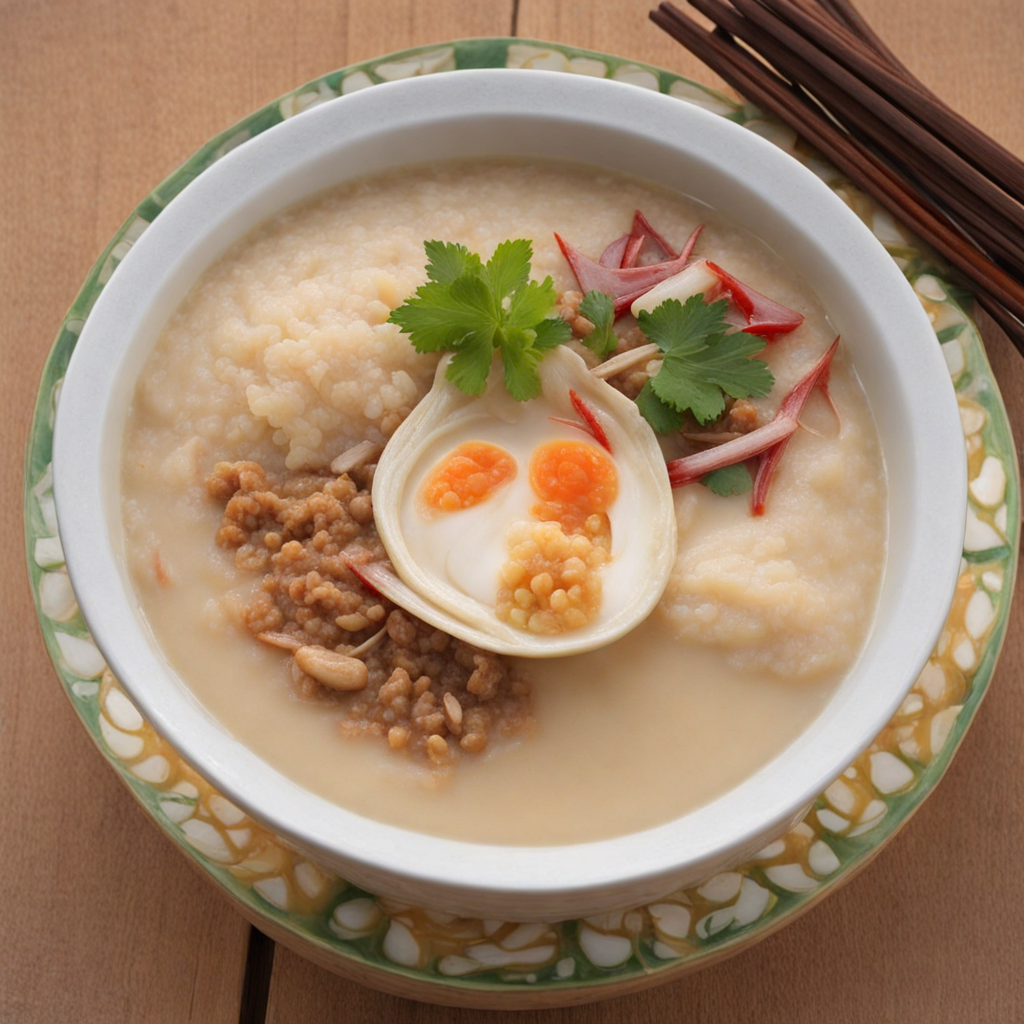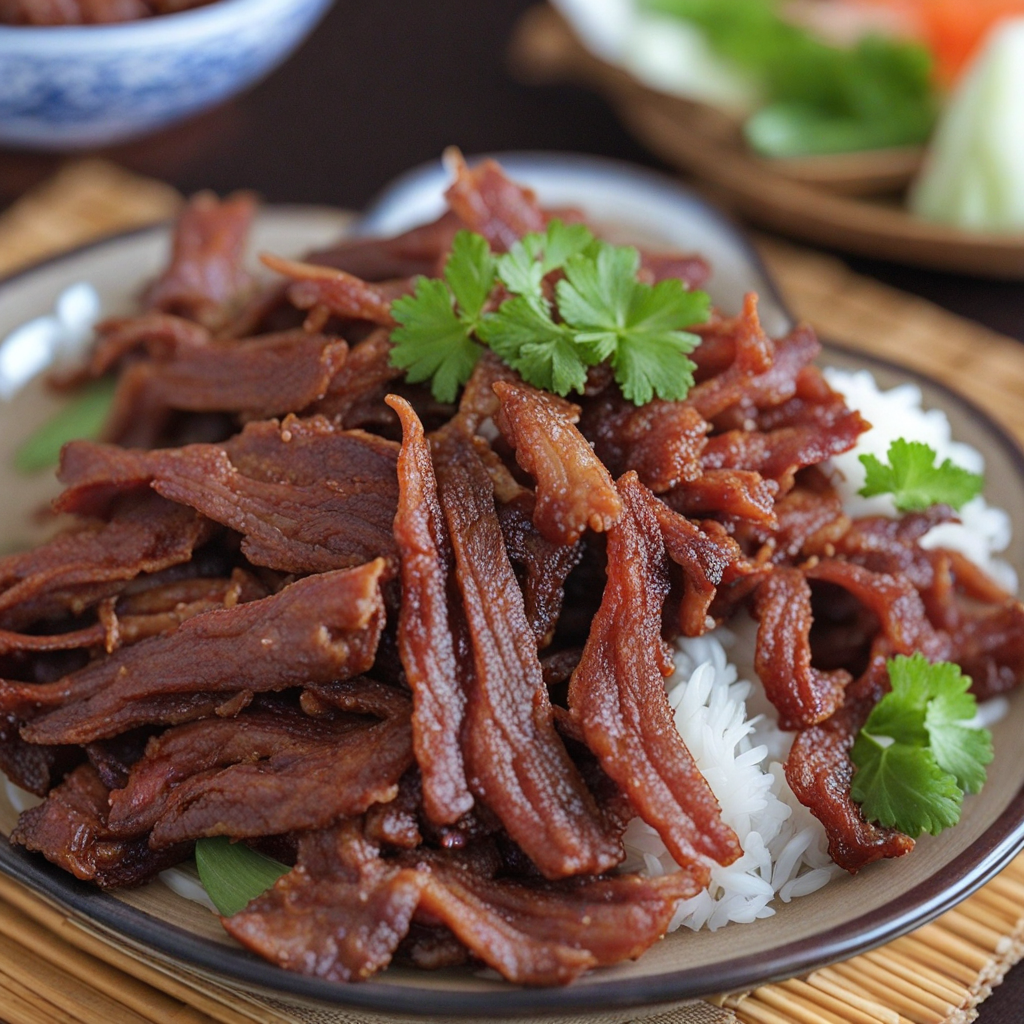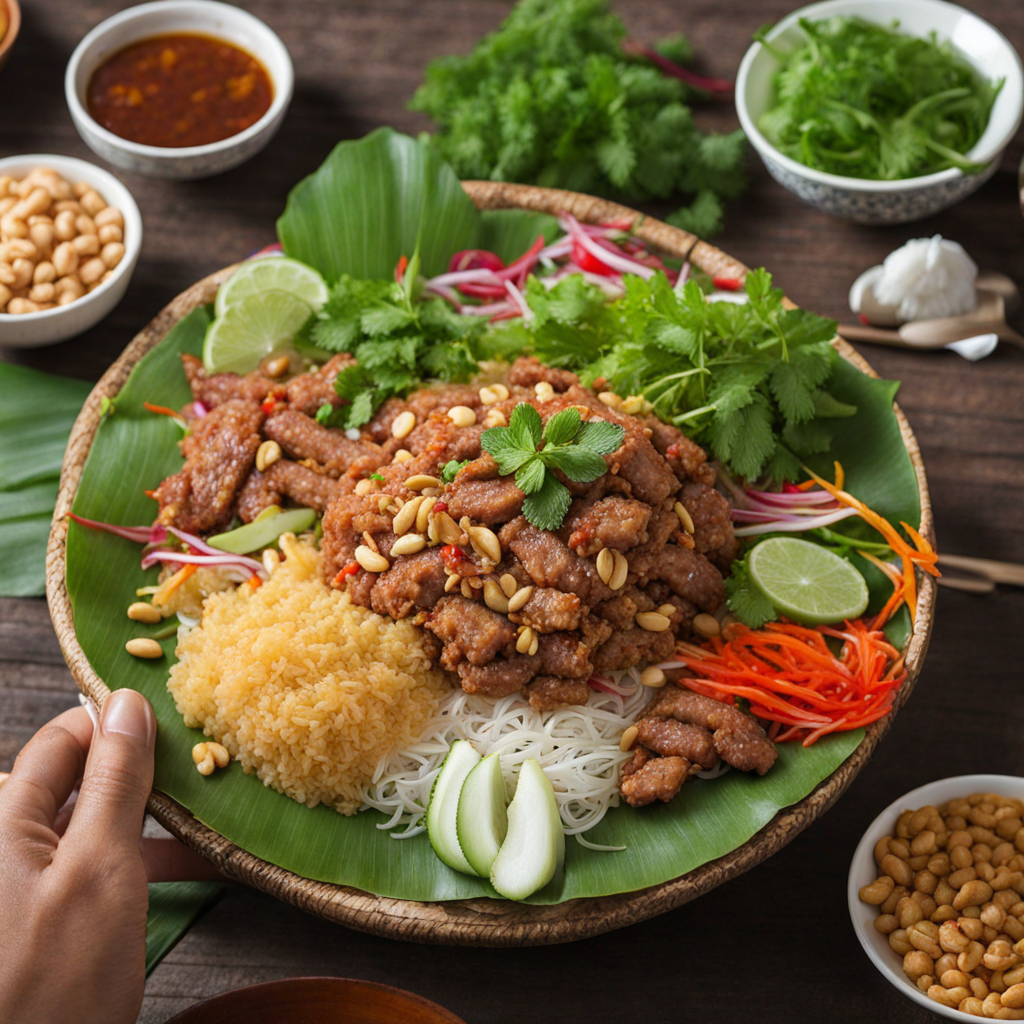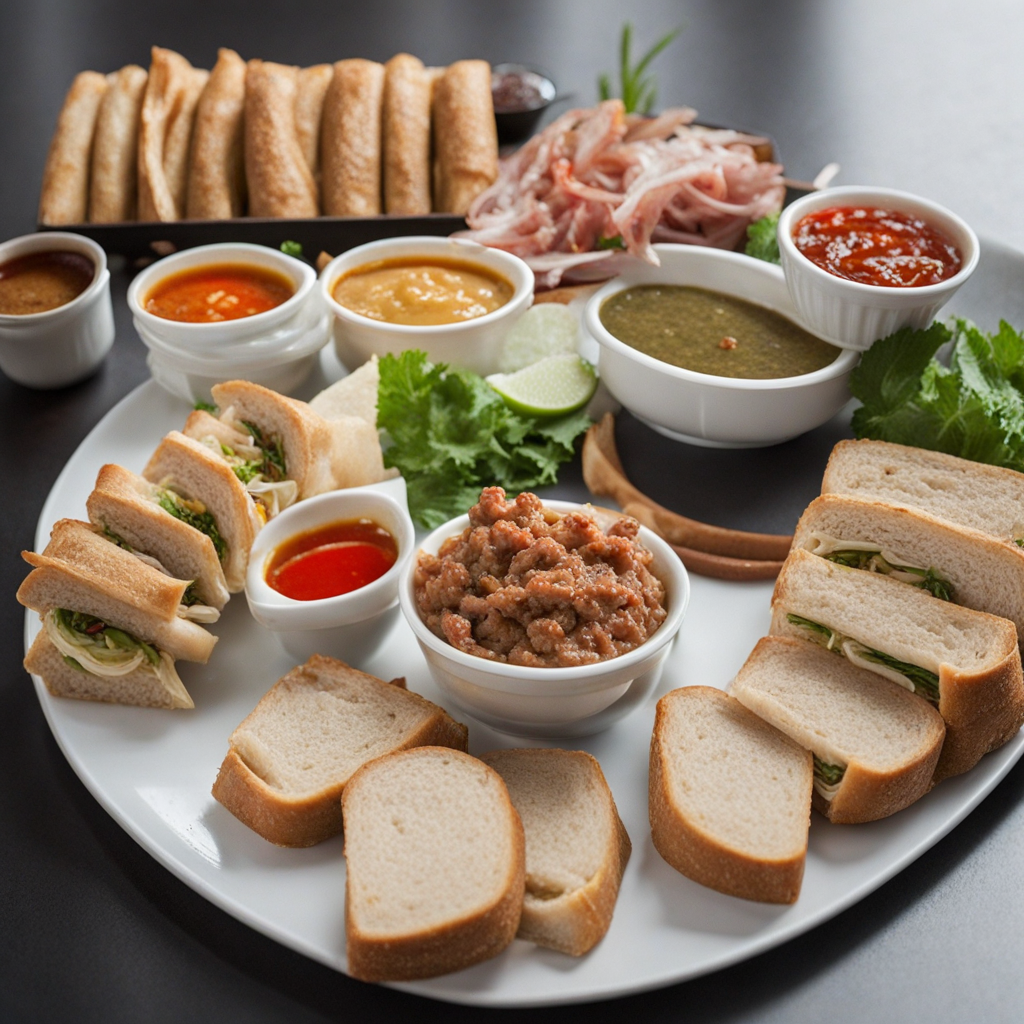Lao Coffee
Lao Coffee is a unique and aromatic beverage that embodies the rich culture and natural bounty of Laos. Grown in the mountainous regions of the country, particularly in the Bolaven Plateau, the coffee beans are cultivated in ideal conditions that create a distinct flavor profile. The beans are often harvested by hand, ensuring that only the ripest cherries are selected. This meticulous process contributes to the quality and depth of flavor found in Lao Coffee, which is typically characterized by a mild acidity, a smooth body, and a rich, earthy undertone. The natural sweetness of the beans often hints at chocolate and caramel notes, making it a delightful choice for both coffee aficionados and casual drinkers alike. What sets Lao Coffee apart is not just the beans themselves, but the traditional brewing method used to prepare it. Typically brewed using a drip filter, the coffee is often served with sweetened condensed milk, giving it a creamy texture and an indulgent sweetness that complements its natural flavors beautifully. This preparation method mirrors the influences of French colonialism in the region, where similar techniques were adopted and adapted. The resulting brew is often enjoyed hot or iced, making it a versatile choice for different climates and preferences. In addition to its rich taste, Lao Coffee also carries with it a deeper story of local community and sustainability. Many coffee farmers in Laos are smallholders who practice organic farming methods, promoting biodiversity and environmental stewardship. By choosing Lao Coffee, you not only experience a new flavor sensation but also support the livelihoods of local farmers and the preservation of their traditional practices. Engaging with this beverage is as much about savoring its taste as it is about connecting with the roots of Laotian culture and its commitment to quality and sustainability.
How It Became This Dish
Origin of ກາເຟລາວ (Lao Coffee) ກາເຟລາວ, or Lao coffee, is a rich and aromatic beverage that reflects the unique agricultural heritage of Laos. The origins of coffee in Laos can be traced back to the French colonial period in the late 19th century when the French introduced coffee cultivation to the region. The first coffee plants were brought to Laos from Vietnam, and the highland areas of the Bolaven Plateau, with its fertile volcanic soil and favorable climate, became ideal for coffee farming. The rich biodiversity and lush landscapes of this region contributed significantly to the quality and flavor profile of Lao coffee. The Bolaven Plateau, located in southern Laos, is renowned for its coffee production. This area is situated at an elevation of 1,000 to 1,300 meters above sea level, which is optimal for growing Arabica and Robusta coffee varieties. The coffee grown here is characterized by a unique flavor that is often described as smooth and slightly fruity, with hints of chocolate and nuts. This distinct taste reflects the terroir of the region, where traditional farming methods are still practiced, and the cultural practices of local communities are intertwined with coffee cultivation. \n Cultural Significance of ກາເຟລາວ Coffee in Laos is not merely a beverage but a vital part of the country’s cultural fabric. It plays a significant role in daily life and social interactions among the Lao people. Coffee shops, known as "ຮ້ານກາເຟ" (han café), serve as popular gathering places where friends and family come together to enjoy coffee, discuss daily matters, and build relationships. These establishments often have a relaxed atmosphere, encouraging long conversations over cups of coffee. Moreover, coffee consumption in Laos is deeply intertwined with traditional customs. The Lao people have a unique way of preparing coffee, often using sweetened condensed milk, which adds a creamy richness to the beverage. The process of making coffee is often communal, with family members and friends participating in brewing and sharing their own variations. This communal aspect highlights the importance of coffee as a social connector, reflecting the values of hospitality and togetherness that are central to Lao culture. \n Development Over Time Over the decades, Lao coffee has undergone significant development, both in terms of cultivation practices and its place in global markets. Following the end of the French colonial rule in the 1950s, coffee production faced various challenges, including political instability and economic difficulties. However, in the 1990s, with the opening up of the country to foreign investment and trade, coffee production began to see a resurgence. The government recognized the potential of coffee as a cash crop and took steps to improve production techniques and quality control. The establishment of cooperatives among local farmers has been crucial in this development. By pooling resources and knowledge, these cooperatives have helped farmers to improve their cultivation methods, adopt organic practices, and achieve better prices for their coffee on the international market. Today, Laos is recognized for its quality coffee, and it has gained a foothold in specialty coffee markets globally, with an increasing number of consumers appreciating its unique flavors. \n Modern-Day Coffee Culture in Laos In recent years, the coffee culture in Laos has evolved significantly, influenced by globalization and the rise of specialty coffee. New cafes with modern designs and innovative coffee preparation methods have emerged in urban areas, especially in the capital city of Vientiane. Baristas are experimenting with various brewing techniques, such as pour-over and siphon methods, showcasing the quality of Lao coffee and attracting a younger demographic that appreciates artisanal products. Furthermore, the rise of eco-tourism has brought attention to the coffee industry in Laos. Tourists are increasingly interested in visiting coffee farms, learning about the cultivation process, and tasting freshly brewed coffee. This has led to the development of coffee tours, where visitors can experience the coffee-making process firsthand and understand the significance of coffee farming to local communities. Such initiatives not only promote awareness of Lao coffee but also contribute to the livelihoods of farmers and rural communities. \n Challenges and Sustainability Despite the positive developments in the Lao coffee industry, challenges remain. Climate change poses a significant threat to coffee production, as rising temperatures and unpredictable weather patterns can adversely affect crop yields. Additionally, many smallholder farmers face economic challenges, including fluctuating market prices and competition from larger coffee producers in the region. To address these issues, there is a growing movement toward sustainable coffee cultivation in Laos. Initiatives aimed at promoting organic farming practices, fair trade, and environmental conservation are gaining traction. Organizations and NGOs are working with farmers to implement eco-friendly practices, such as shade-grown coffee, which not only enhances biodiversity but also improves coffee quality. These efforts are crucial in ensuring that the coffee industry remains viable and sustainable for future generations. \n The Future of ກາເຟລາວ Looking ahead, Lao coffee has the potential to further establish itself as a premium product on the world stage. With the increasing appreciation for specialty coffees, there is a growing market for high-quality, sustainably produced coffee from Laos. Efforts to enhance branding and marketing strategies can help elevate the profile of Lao coffee globally, attracting consumers who seek unique and authentic flavors. Moreover, as the younger generation of farmers becomes more involved in coffee production, there is an opportunity for innovation and creativity within the industry. By blending traditional practices with modern techniques, these farmers can create a distinctive identity for Lao coffee that honors its heritage while appealing to contemporary tastes. The journey of ກາເຟລາວ from its humble beginnings to its current status as a culturally significant and globally appreciated beverage is a testament to the resilience and ingenuity of the Lao people. As the coffee industry continues to evolve, it remains a vital part of Laos' agricultural landscape and cultural identity, promising a bright future for this beloved beverage.
You may like
Discover local flavors from Laos



